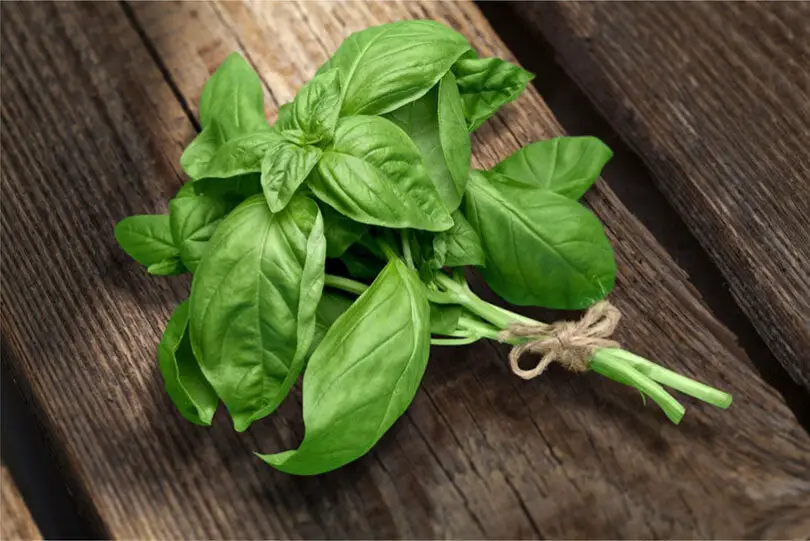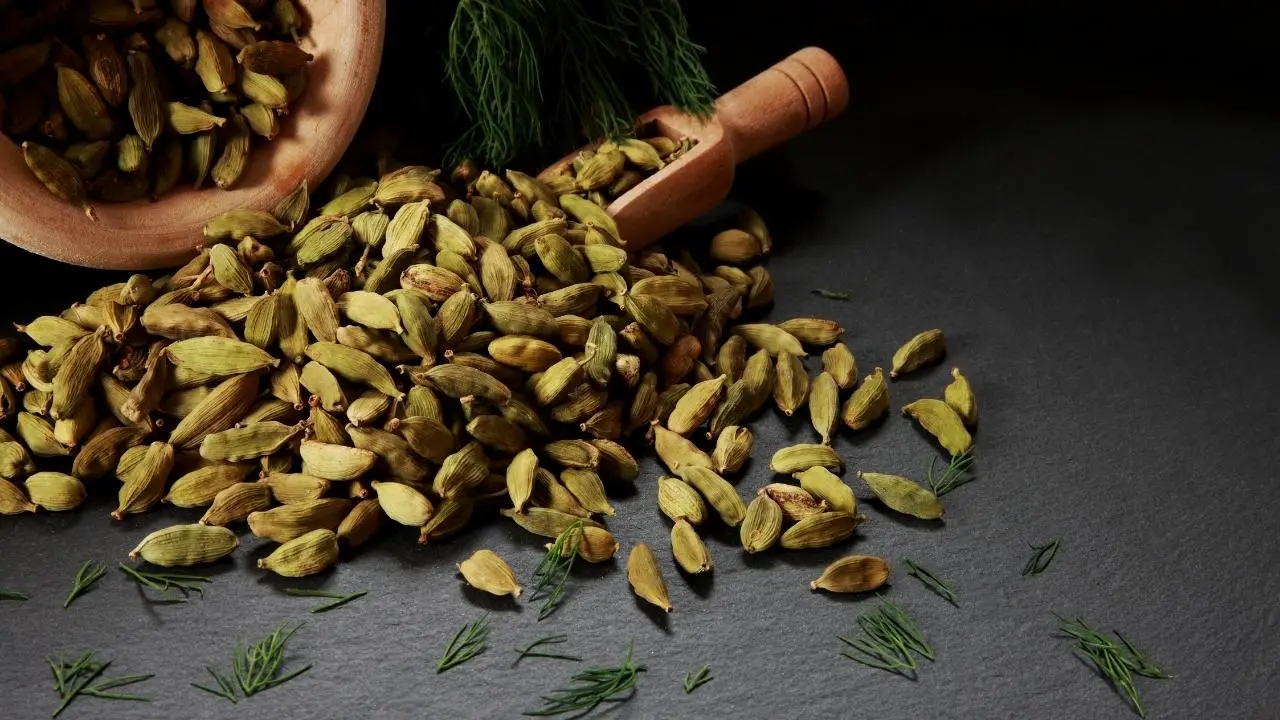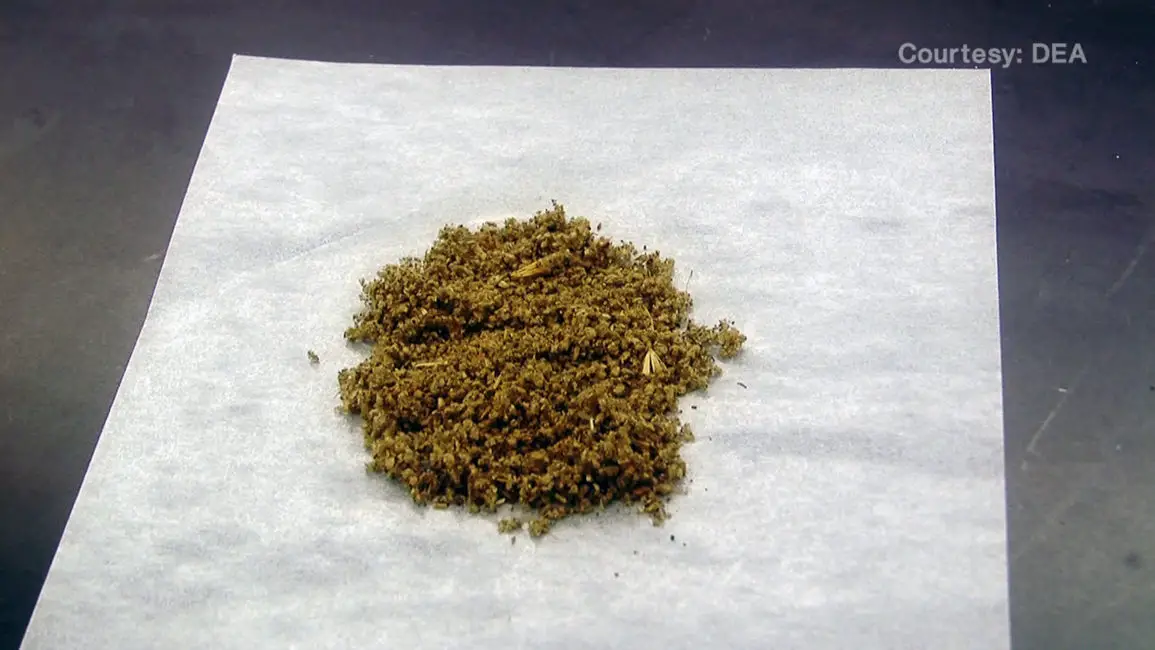Basil smells like a sweet, aromatic herb with notes of peppery and clove-like scent. Basil is a beloved herb known for its delightful aroma and distinct flavor.
With a fragrance that is both sweet and peppery, it delights the senses and adds a touch of freshness to any dish. The scent of basil is often described as a combination of mint and cloves, with hints of citrus and spice.
This aromatic herb is used in various cuisines around the world, particularly in Mediterranean and Thai cooking, where its unique fragrance and taste are highly valued. Whether it’s in a pesto sauce, a Caprese salad, or a flavorful curry, basil brings its unmistakable scent and taste to the table, enhancing the overall dining experience. So, next time you encounter the enticing smell of basil, take a moment to savor its aromatic profile and imagine the culinary possibilities it holds.
The Aromatic Profile Of Basil
The aromatic profile of basil is one that is easily recognizable and highly desirable. The fresh leaves of basil emit a unique aroma that is often described as herbaceous, slightly sweet, and peppery. This delightful scent is a result of the various compounds present in basil, including eugenol, linalool, and limonene.
The primary fragrances found in basil can be identified as minty, clove-like, and citrusy to some extent. These aromatic notes contribute to the overall fresh and vibrant fragrance that basil is known for. It is these captivating scents that make basil a popular choice in culinary dishes and essential oils.
Understanding the nuances of basil scent is essential for anyone who appreciates its unique qualities. By exploring the different fragrances of basil and identifying the key compounds responsible for its aroma, one can gain a deeper understanding of this incredible herb.
The Scent Notes Of Basil
The scent of basil is known for its unique and inviting fragrance. With its sweet and subtle undertones, basil has hints of a peppery and floral aroma that make it truly captivating. These scent notes combine to create a delightful and refreshing experience.
Exploring the herbal fragrance of basil can transport you to a serene garden, filled with the essence of nature. The sweet undertones add a touch of warmth, while the peppery notes lend a hint of spiciness. The floral aroma adds a delicate and soothing element, making basil an enticing sensory experience.
Using basil in cooking or having it as a part of your home décor can bring a calming and revitalizing ambiance. Its distinct scent adds a touch of freshness to any space, making it a popular choice in aromatherapy.
Factors Influencing Basil’s Fragrance
Basil is an herb with a distinct and aromatic fragrance that is often described as sweet, peppery, or slightly minty. The smell of basil can vary depending on several factors, including the variety of basil and the environmental conditions in which it is grown.
There are many different varieties of basil, each with its own unique scent variations. Some popular varieties include sweet basil, lemon basil, and Thai basil. Sweet basil has a strong, clove-like fragrance, while lemon basil offers a citrusy aroma. Thai basil, on the other hand, has a spicier and more anise-like scent.
Environmental factors also play a significant role in basil’s aroma. The quality and intensity of sunlight, temperature, humidity, and soil conditions can all impact the fragrance of basil leaves. For example, basil grown in warmer climates tends to have a stronger aroma compared to those grown in cooler regions.
Growing conditions also influence the aromatic quality of basil. Proper soil fertility, adequate water supply, and appropriate pruning techniques can enhance the fragrance of basil leaves. Additionally, using organic fertilizers and avoiding chemical pesticides can contribute to a more robust and natural basil scent.
Basil Varieties And Their Distinct Scents
Basil varieties come with their own unique scents that make them distinct from one another. Genovese basil, for example, is a classic aromatic herb that emits a delightful fragrance, which is often described as sweet and slightly peppery. This variety is commonly used in Italian cuisine and is known for its strong aroma.
Lemon basil, on the other hand, has a citrus-infused fragrance that adds a refreshing twist to any dish. Its zesty and tangy scent makes it a popular choice for adding a burst of flavor to salads, dressings, and even desserts.
Purple basil, with its subtly spiced aroma, offers a different experience. This variety has a unique scent that combines hints of cloves and anise, making it a favorite for adding depth of flavor to marinades, sauces, and cocktails.
Environmental Factors And Basil Fragrance
Basil is a herb known for its distinctive fragrance that enhances various culinary dishes and adds a refreshing aroma to the surroundings. The scent of basil is influenced by several environmental factors. Temperature plays a significant role in determining the intensity of basil’s fragrance. Lower temperatures tend to diminish the aroma, while higher temperatures enhance it. Sunlight also contributes to enhancing the fragrance of basil. Exposing the plant to sufficient sunlight helps in releasing its natural oils and intensifies the scent. Soil composition is another factor that affects the fragrance intensity. Well-drained, fertile soil with good organic matter content promotes the growth of basil and enhances its aroma. By understanding and manipulating these environmental factors, you can maximize the scent of basil and enjoy its aromatic presence in your home or kitchen.
Cultivation Practices For Enhanced Basil Aroma
What Does Basil Smell Like
Cultivation Practices for Enhanced Basil Aroma
Proper pruning techniques for stronger scent
Basil’s aroma can be enhanced through proper pruning techniques. Regularly pruning basil plants helps to increase the release of essential oils responsible for its distinct scent. When pruning, ensure to remove any wilted or damaged leaves, as well as any flowers that may appear. This allows the plant to focus its energy on producing new growth with a stronger aroma. Additionally, pinching the tops of the basil plant encourages branching, which leads to more leaves and more fragrance. By maintaining a healthy and well-pruned basil plant, you can enjoy a more intense and captivating aroma in your culinary creations.
Essential nutrients for maximizing fragrance
To maximize the fragrance of basil, it is important to provide the plant with the essential nutrients it needs. Basil requires a well-balanced fertilizer that is rich in nitrogen, phosphorus, and potassium. Nitrogen promotes leaf growth, while phosphorus aids in the development of strong roots. Potassium helps improve the overall health and aroma of the plant. Additionally, ensuring that the soil is well-drained and has a pH level between 6 and 7 can further enhance the fragrance of basil. By providing the proper nutrients and a favorable growing environment, you can help your basil plants reach their full aromatic potential.
Harvesting and preserving basil’s aromatic qualities
When harvesting basil, it is crucial to do so at the right time to preserve its aromatic qualities. The best time to harvest is in the morning after the dew has evaporated but before the heat of the day sets in. This is when the essential oils in basil are at their peak. To harvest, pinch or cut off individual leaves or entire stems just above a leaf node. Avoid removing more than one-third of the plant at a time to ensure continued growth. To preserve the aromatic qualities, gently wash the leaves, pat them dry, and store them in an airtight container in the refrigerator. This helps to retain the freshness and fragrance of the basil for longer.
Utilizing The Fragrance Of Basil
Utilizing the fragrance of basil in various culinary applications can enhance the overall dining experience. The distinct aroma of basil adds a refreshing and aromatic element to dishes, imparting a unique flavor profile. From soups and sauces to salads and stir-fries, basil can elevate the taste of different cuisines.
Basil-scented products offer numerous benefits beyond just enhancing the culinary experience. The soothing and invigorating scent of basil is believed to have therapeutic properties that can promote relaxation and reduce stress. From scented candles and essential oils to bath products and room sprays, basil-scented products can create a tranquil environment and provide mental and emotional well-being.
The therapeutic properties of basil aroma have been used in aromatherapy techniques to alleviate anxiety, promote mental clarity, and improve mood. Many people find the scent of basil uplifting and energizing, making it a popular choice for aromatherapy sessions. Inhaling the aroma of basil can stimulate the senses and help create a harmonious and calming atmosphere.

Credit: gardening.stackexchange.com
Frequently Asked Questions On What Does Basil Smell Like
Does Basil Have A Good Smell?
Basil has a good smell. It is fragrant and pleasant, adding freshness to dishes.
Why Does Basil Smell Like That?
Basil smells like that because of its natural compounds and essential oils.
What Does Basil Smell And Taste Like?
Basil smells and tastes herbal, with a fresh, slightly sweet, and peppery flavor.
What Does Burning Basil Smell Like?
Burning basil smells like a refreshing blend of herbs with a hint of sweetness.
Conclusion
The aroma of basil is truly remarkable and unforgettable. Its distinctive scent can be described as sweet, herbal, and slightly peppery, with hints of mint and cloves. Whether you encounter it in the garden, the kitchen, or in a scented candle, the fragrance of basil is sure to captivate your senses.
This aromatic herb has been cherished for centuries, not only for its delightful scent but also for its culinary and medicinal properties. Adding fresh basil to your dishes can elevate the flavors to new heights while using basil essential oil can provide a soothing and calming effect.
With its wide range of varieties, including sweet basil, Thai basil, and lemon basil, there is a basil scent for everyone to enjoy. So next time you come across this delightful herb, take a moment to appreciate its alluring fragrance and let it transport you to a world of culinary delights and aromatic experiences.









